Search Operators: How to Use Google Search More Effectively
You probably use Google every day, so you might not have ever thought about HOW you’re searching. You type in what you’re looking for and hit Enter, right? Usually you’ll find something that will work, but you could get much more relevant results with just a few more tools at your disposal. Let’s take a look at how to use Google search more effectively.
We’ll start with the very high-volume, high-competition term, “Star Wars.” A basic search with no parameters added yields something like this result:
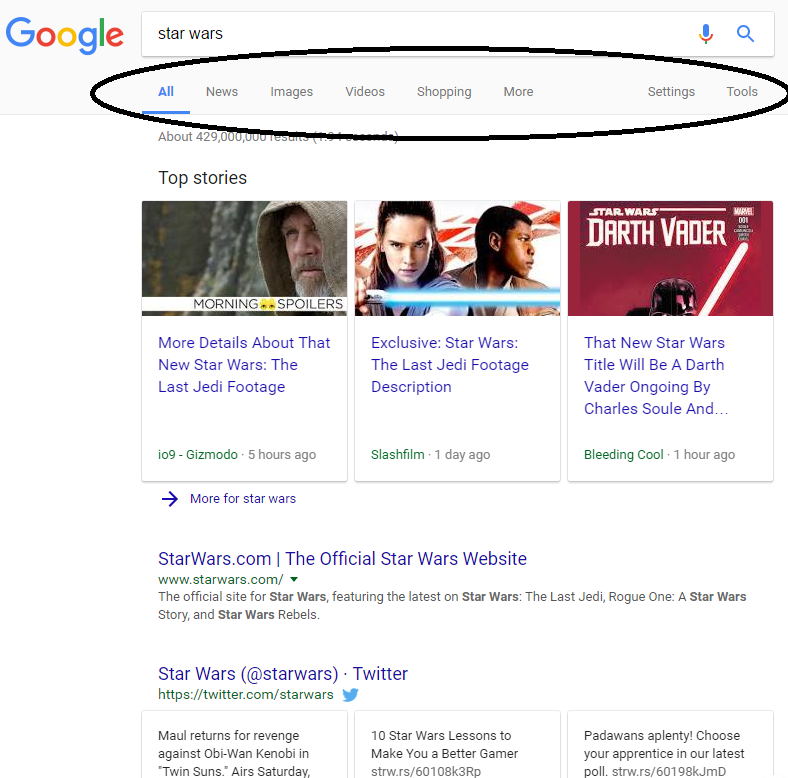
We’ve got top stories in a card format, starwars.com, and then results from Twitter. It’s a topic with a lot of buzz, so it’s no surprise to see Google allowing for a rotation of results. But look at the top of the results — we already have lots of ways to modify our search! We can look at news, images, videos, shopping (purchasable items related to Star Wars), and more (maps, books, and flights). Then on the far right, I want to point out the Tools option. If you click on that, you can change the date range. Maybe you want to only see results posted in the past year.
Let’s try that.
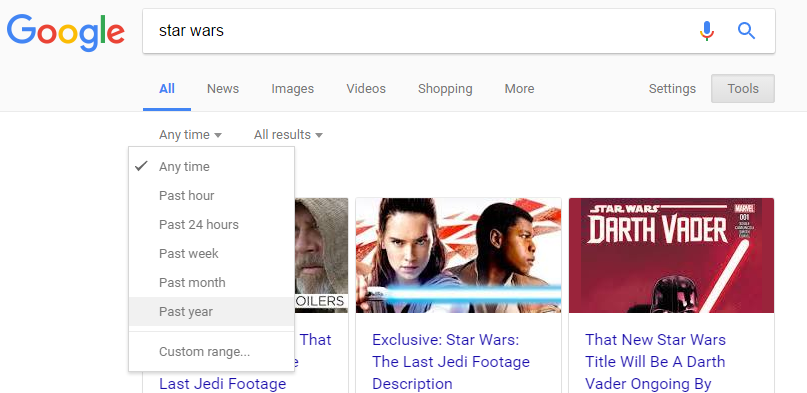
Ok now we can see just results from the past year (which you can further sort by relevance or date).
You can probably imagine how this feature would help you if you were looking for very timely results. You can filter down to even results from the past hour! Great if you’re trying to write a unique take on something happening in real time. But what if you’re looking for something REALLY specific?
Let’s talk about search operators.
I recently read this post which really does a great job explaining all you could want to know about search operators. I want to dive into how I use just a few of these.
One of my go-to search operators is the site: operator. This works especially well if you know the topic you want to look for and the domain or type of TLD you want to find that topic on. (A “TLD,” or top-level domain, is what comes at the end of the URL: .edu, .com, .net, .org, etc). So you could search for the following:

And below the ads and Twitter results you would see that all the organic results are from .org domains and contain match the keyword you’re searching for (although you didn’t specify that those keywords should be exact match).
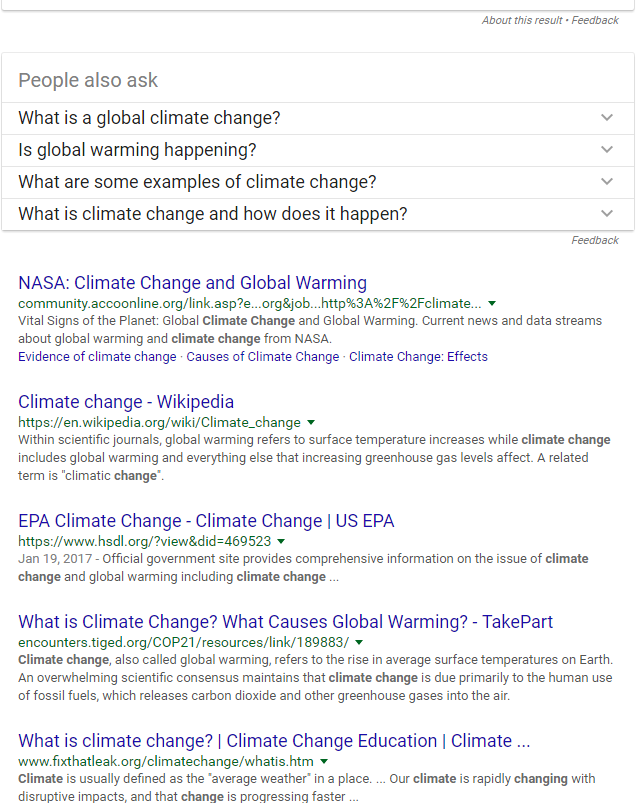
Now let’s say you want to look for a .org site that has both “climate change” and “global warming” in the title. For that, we would use this operator:
allintitle:”climate change” “global warming” site:.org
*Notice there are no spaces between the operator and the first thing following the colon. That’s important!
The result is a list of .org sites that contain exact matches for BOTH “climate change” and “global warming” in the titles.
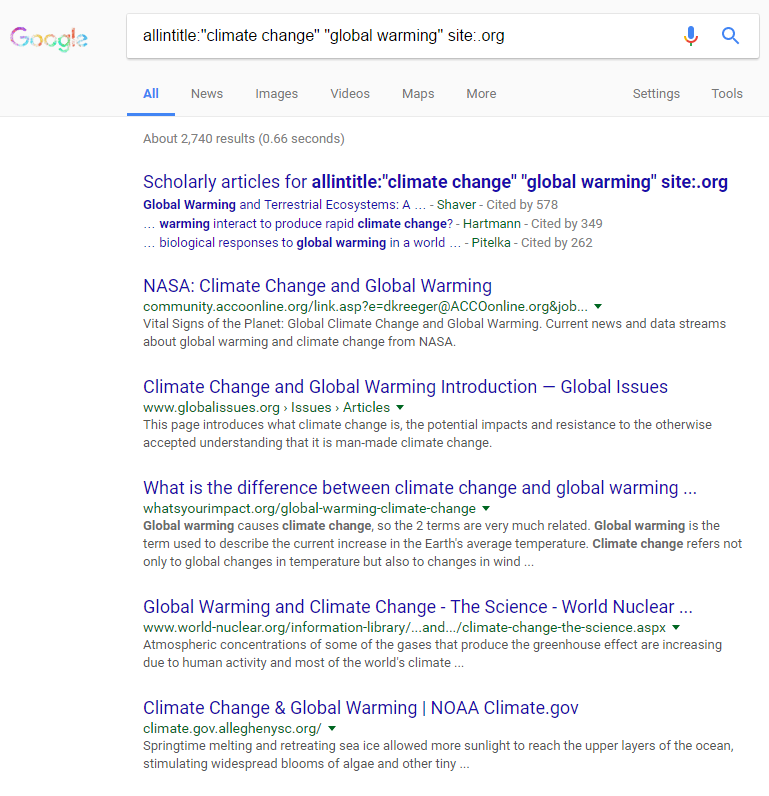
Using search operators, you can narrow your results to ONLY the most relevant sources very easily. Here are some others I like using:
Allintext: — looks for all the words following it in the text of the webpage result
Allinurl: — looks for all the keywords following it in the actual URL of the results
Author: — narrow your results to those by a specific author
Another trick is to exclude certain keywords from your search. If, for example, you wanted to look for results for the Kennedy family but wanted to exclude articles solely about John F. Kennedy. Here’s how that looks, before and after:

In the second image where I excluded “John F. Kennedy” from my results, I put the name in quotes to be sure that it included the entire name and not just instances of “john,” “f.” or “kennedy.”
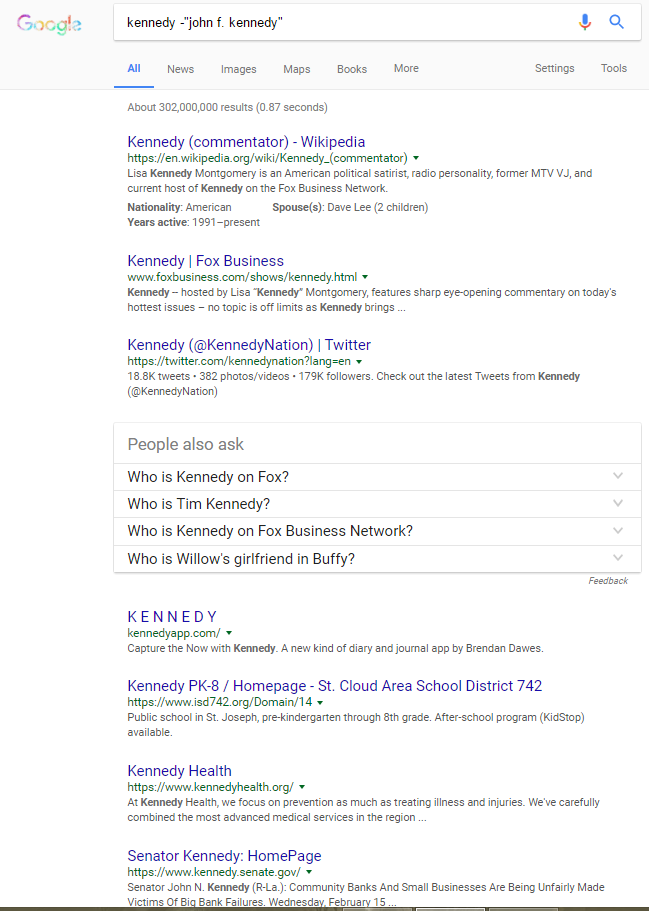
Maybe you’re interested in history but not interested in results for “history major.”
In which case your search should be: history -major
Maybe now you want to narrow results to just .gov sites.
history -major site:.gov
This is fun stuff, right? And it has a lot of applications. You can keep up with the most current events, or you can search .edu sites for more scholarly articles (or you can use Google Scholar for that). Students, teachers, marketers, and even very interested members of the public can easily find exactly the type of results they want or need.
Do you use search operators? Will you use them now? How do you see this being useful for you? I’d love to know!
Laura Lee – SEO Specialist and Account Manager



